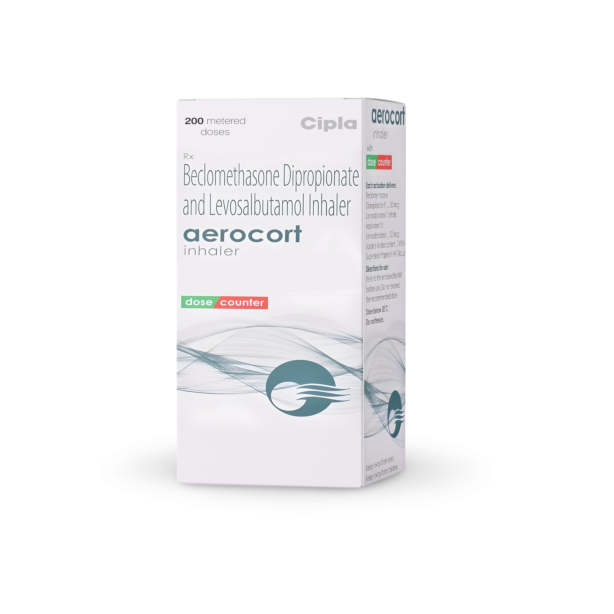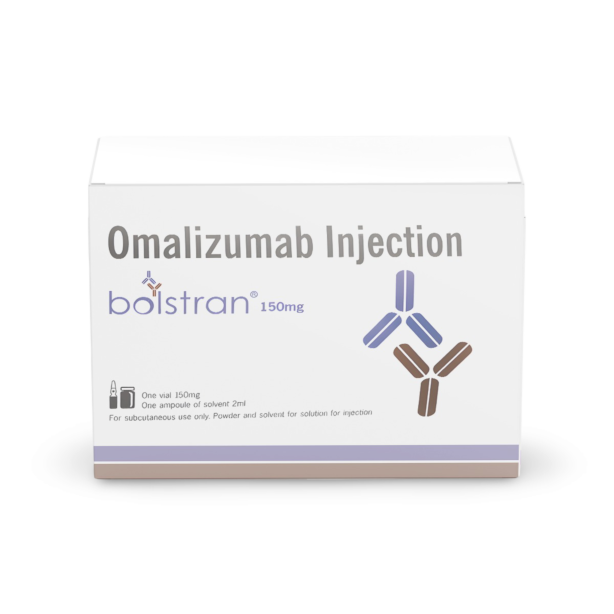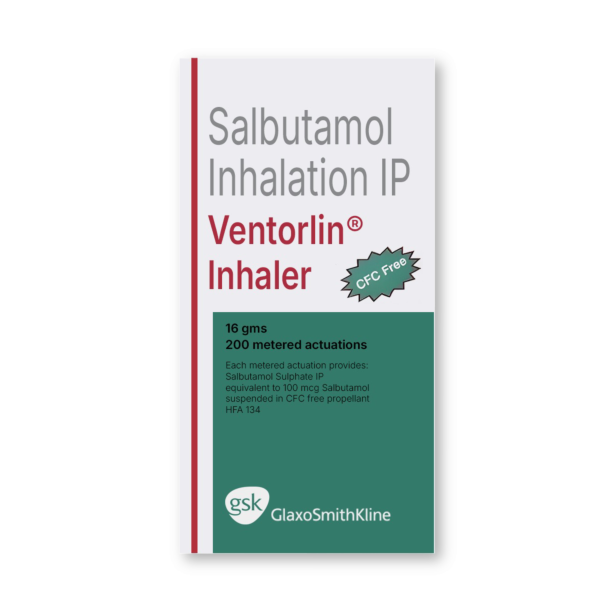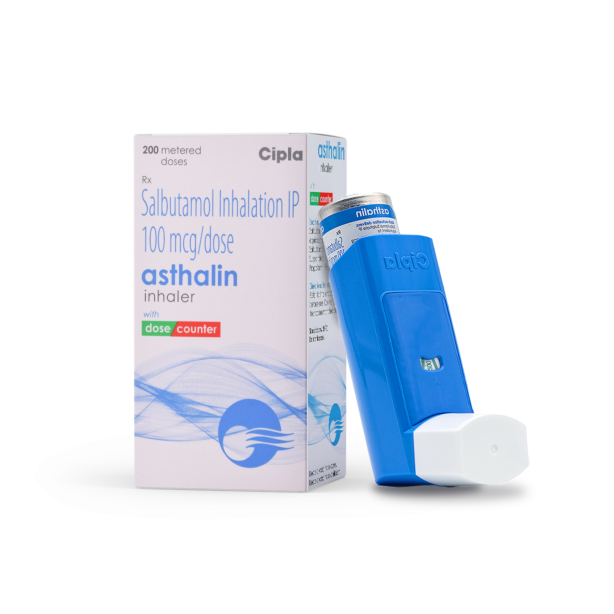What comes to your mind when you think of Asthma? A wheezing and chest-tightness-like symptoms? Although they are the major symptoms of Asthma, there is also an association between Asthma and coughing.
While coughing can be a symptom of various respiratory conditions or the body’s post-allergic response, an Asthma cough is somehow different and more problematic than a classic cough. Furthermore, there are also chances that coughing can be the only symptom of your ongoing chronic Asthma, as in the case of Cough Variant Asthma (CVA), which you may mistake for Bronchitis.
Learning about Asthma and coughing and how it differs from other coughs is essential for detecting the condition early and seeking the best possible treatment. This article elaborates on the link between Asthma and coughing, CVA, and more.
What is an Asthma cough?
Asthma cough is a reflexive response to irritation and inflammation in the airways caused by Asthma. The condition leads to swelling and tightening of the breathing tubes, making them more sensitive to allergens, irritants, and other triggers. This results in coughing as the body tries to clear the airways and relieve irritation.
In typical Asthma, coughing often accompanies wheezing (a whistling sound when breathing), breathlessness, and chest tightness.
Save up to 90% on your medicine bills

Aerocort Inhaler 50 mcg + 50 mcg

Bolstran 150 mg Injection

Ventorlin CFC Free Inhaler 100 mcg/18 mg

Asthalin HFA Inhaler 100 mcg
Cough Variant Asthma
Asthma and coughing are closely linked, and sometimes, cough is the only present symptom of your ongoing Asthma, as in Cough Variant Asthma.
It is a form of Asthma whose main symptom is a persistent, dry, non-productive cough that often lasts more than six to eight weeks. Unlike classic Asthma, it typically lacks wheezing, chest tightness, or noticeable breathlessness.
This form of Asthma is a significant cause of chronic cough Asthma. It is often underdiagnosed because the cough can be mistaken for other conditions like Bronchitis.
The cough in CVA is usually dry, meaning it does not produce mucus. However, some people may experience Asthma and cough up mucus or phlegm during flare-ups or infections. The cough can be triggered or worsened by exercise, cold air, allergens, or respiratory infections.
Symptoms of Asthma cough and Cough Variant Asthma
The main symptom of Asthma and coughing, especially in Cough Variant Asthma, is a persistent dry cough, often without mucus, that may worsen at night or with exercise, as in Exercise-induced Asthma.
Other symptoms that may accompany or help differentiate an Asthma cough from a regular cough include:
- Dry cough Asthma: People may often observe a persistent, non-productive cough without mucus.
- Asthma cough at night: Nighttime coughing is common in Asthma and can disrupt sleep and the quality of your life. It is often triggered by airway inflammation or irritants.
- Coughing during an Asthma attack: Coughing during an Asthma attack may be severe and accompanied by wheezing, chest tightness, and difficulty breathing.
- Cough Variant Asthma symptoms: A chronic dry cough lasting over six weeks, often without wheezing or breathlessness.
- Allergic Asthma cough: Cough can be triggered by pollen, dust mites, pet dander, or mold. You may also experience allergy symptoms, such as a runny nose or watery eyes.
Persistent coughing in Asthma can lead to fatigue, chest discomfort, and difficulty exercising or performing daily activities.
Causes and triggers of Asthma cough
Coughing during Asthma can be triggered by various factors that irritate the lungs or provoke an allergic reaction. The following are the common causes of Asthma:
- Allergens: Indoor allergens like dust mites, pet dander, and mold, as well as outdoor allergens such as pollen, can trigger coughs.
- Irritants: Smoke, air pollution, strong odors, chemical fumes, and cold air can be responsible for triggering Asthma and, thereby, coughing.
- Respiratory infections: Viral infections like colds or flu can worsen asthma and cough.
- Exercise: Physical activity can induce coughing, especially if Asthma is uncontrolled.
- Medications: Beta-blockers and Aspirin sensitivity can trigger coughing in some people with Asthma.
- Stress and weather changes: Emotional stress and rapid changes in temperature or humidity can also cause coughing in people with Asthma.
Diagnosing Asthma Cough
Diagnosing Asthma and coughing, particularly Cough Variant Asthma, can be challenging because the cough may be the only symptom, and physical examinations often appear normal.
The common tests used for diagnosis of coughing in Asthma are as follows:
- Medical history and symptom assessment: Discuss the cough’s duration, triggers, and associated symptoms with your doctor.
- Spirometry: Your doctor can perform a Lung Function Test (LFT), measuring airflow and lung capacity, which may be normal in CVA.
- Bronchoprovocation test: During this process, your doctor will give you medicine to narrow your airways to check your airway’s reactivity.
- Trial of Asthma medications: Improvement of cough after treatment with Asthma medications supports the diagnosis.
Asthma cough treatment and the best medicines
Asthma and coughing treatment aims to reduce airway inflammation, relieve symptoms, and prevent worsening. Treatment for Cough Variant Asthma is similar to that for classic Asthma and includes:
Inhaled Corticosteroids (ICS)
These are the cornerstones of Asthma treatment, reducing airway inflammation and controlling cough. ICS inhalers like Budesonide, such as Foracort Inhaler 6/200 mcg, effectively manage both CVA and classic cough during Asthma.
Bronchodilators
Your doctor can also prescribe Bronchodilators for cough and Asthma:
- Short-acting beta-agonists (SABA): Other SABA medications, including Albuterol (Asthalin HFA Inhaler 100 mcg), provide quick relief during Asthma attacks or coughing episodes.
- Long-acting beta-agonists (LABA): These are combined with ICS for long-term control.
- Nebulizers: These deliver medication in mist form for more effortless inhalation, especially during severe Asthma attacks.
Oral medications
Leukotriene Receptor Antagonists, like Montelukast (Montair 10 mg), are pills that are taken daily to help control inflammation and coughing.
Cough suppressants for Asthma
Over-the-counter cough suppressants generally do not relieve an Asthma cough because coughing is a protective reflex to clear irritated airways. However, in some cases, doctors may recommend specific cough suppressants for Asthma to ease severe coughing, but this is usually alongside to Asthma control medications.
Asthma cough syrup
There is no specific Asthma cough syrup universally recommended, as treatment focuses on controlling the underlying Asthma. Some syrups with Bronchodilator or anti-inflammatory properties may be prescribed, but inhaled medications remain the mainstay.
Asthma cough remedies and lifestyle tips
In addition to medications, several remedies and lifestyle adjustments can help reduce Asthma and coughing, such as:
- Identify and minimize exposure to allergens and irritants.
- Using a humidifier can soothe dry airways.
- Drinking fluids helps keep the mucus thin if present.
- Include techniques like Pursed-lip breathing to ease symptoms.
- Regular exercise helps improve lung function, but it should be done with proper Asthma control.
- Keep a diary of coughing episodes and triggers to discuss with your doctor.
Conclusion
Asthma cough is a persistent, dry, non-productive cough that can sometimes be the only symptom of Asthma, as in the case of Cough Variant Asthma. Usually, coughing aims to clear the airways and expel the dust or foreign particles from the lungs.
However, in Asthma, chronic coughing is a symptom that may cause nighttime sleeplessness and affect the quality of life.
If the cough persists for many weeks, you can diagnose it early by consulting your doctor. You can seek treatment, such as inhaled Corticosteroids, oral medicines, and Bronchodilators.

Frequently Asked Questions
Do people with Asthma cough a lot?
Yes, people with Asthma tend to cough significantly more than those without Asthma, especially during the day and upon waking, though coughing usually decreases at night. This cough is often dry and can be a key symptom of Asthma or Cough Variant Asthma.
When to go to the hospital with an Asthma cough?
You should go to the hospital if your Asthma cough worsens despite medication, causes severe wheezing, difficulty breathing, blue lips or face, rapid breathing, chest tightness, inability to speak, or if symptoms worsen rapidly or don’t improve with rescue inhalers.
Is oregano good for cough and Asthma?
Yes, oregano has anti-inflammatory and antimicrobial properties that may help soothe cough and Asthma symptoms. It can relax airways and reduce irritation, but should not replace prescribed Asthma treatments. Always consult a doctor before using oregano for Asthma or a cough.
Is ginger good for an Asthma cough?
Yes, ginger is beneficial for an Asthma cough due to its anti-inflammatory and bronchodilator properties. Compounds like gingerols and shogaols help relax airway smooth muscles, reduce inflammation, and may ease coughing and Asthma symptoms.
When referencing outside resources, GoodrxMedicine always provides full citations. To learn more about the measures we use to maintain the quality of our content, please review our Content Information Policy.











